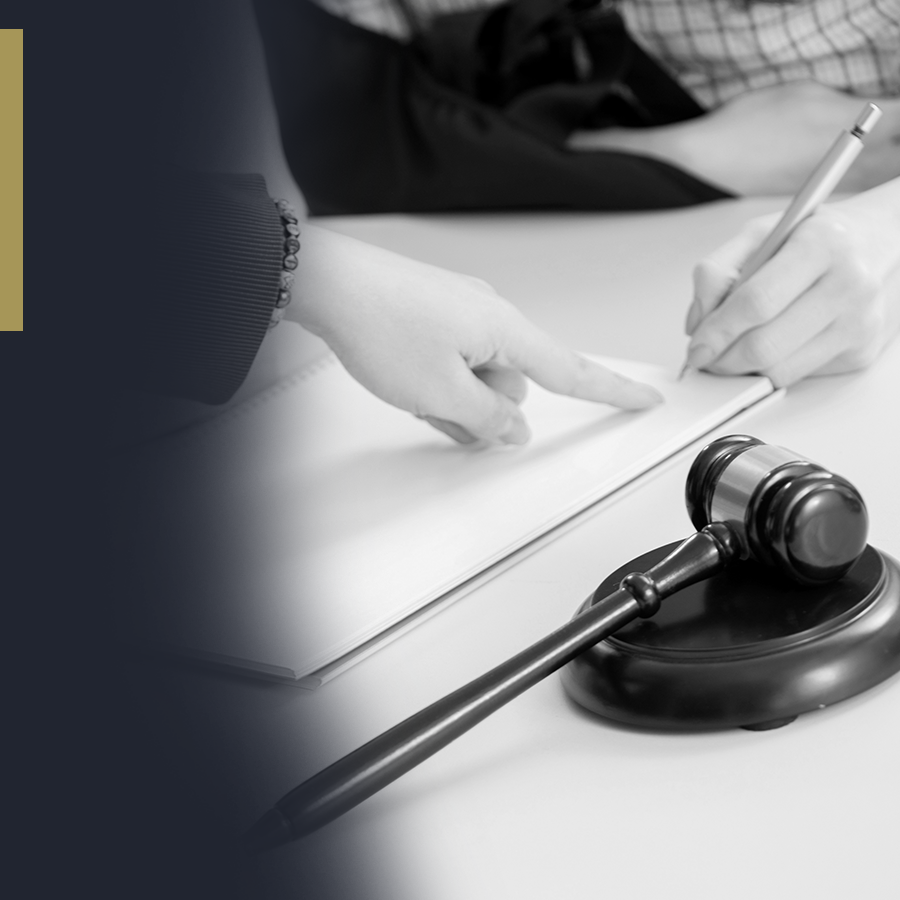How to Prepare For a Deposition in a Personal Injury Case
Six months ago, you were in a car accident on Macon Street in McDonough. Another vehicle struck you from behind, and since then you have suffered from excruciating back pain. The other driver’s insurance company refused to pay your medical bills, so you filed suit against them.
Today, you received a notice of deposition in a personal injury case – what does that mean? And how do you prepare?

What is a Deposition in a Personal Injury Case?
A deposition is sworn testimony, under oath. The lawyer for the opposition (usually the defense) will question you about the details of your case in order to put your side of the story on record.
Generally, the deposition will take place at the attorney’s office. You and your lawyers will attend, as well as the opposing attorneys and a court reporter.
The court reporter will record everything that is said while you are being deposed and the records may be admissible in court.
Depositions in a personal injury case usually happen during the “discovery” phase of a trial, after a lawsuit has been filed, but before court proceedings begin.
If you need to give a deposition, you will be alerted via a legal document known as a notice of deposition. This is not a subpoena or a court order, but a notice of deposition is mandatory.
Once you receive this notice, you and your counsel will set a time and date that works for all involved.
What Happens During a Personal Injury Deposition?
If you receive a notice of deposition, you may feel nervous. For most people, any type of legal proceeding is out of the ordinary and can seem intimidating.
However, with proper preparation, there is nothing to fear.
A deposition in a personal injury case is your chance to officially state your story; you will be able to give a full account of your injuries and how they impacted your life.
Though they are official legal proceedings, and a court reporter is present, depositions can feel rather informal. Still, you should be well-prepared before you attend.
Opposing counsel will be asking detailed questions, and it is important that you represent your case accurately. Any mistakes in your retelling or murky language could damage your case.
Your lawyer cannot answer for you during a deposition, but they can (and should) meet with you beforehand to go over your version of events and ask you practice questions.
The questions asked during a deposition in a personal injury case are called “interrogatories,” and they will likely fall under one of the following topics:
- Background Information
The first set of questions will establish your identity. Expect to answer questions about your name, contact information, where you live, your job, your family, and potentially even your work history or educational background.
- Medical History
In a personal injury case, the plaintiff must prove that the injury they received was due to negligence on the part of the defendant. Because of this, you will need to describe the state of your health before the incident at issue.
The defense will likely have many questions about your health prior to the accident. If you have ever experienced an injury or hospitalization, you will probably need to disclose them during the deposition.
These questions may feel invasive at times, but it is legal for the defense to make such inquiries. Your lawyer should prepare you for these questions beforehand, and they will be sitting-in on your deposition. If any questions do cross a legal line, they will intervene.
- Account of the Accident
You will need to relay your account of the accident. Not only will you describe the incident in detail, but you will also answer many questions about it.
Expect queries such as:
- What was the weather like when you fell?
- What were you thinking immediately before the accident?
- Did you have your phone in your hand?
- Which hand was your phone in?
- What kind of shoes were you wearing?
- Did you trip or slip?
- How wide was the sidewalk?
- Did anyone see the accident?
These questions will likely seem repetitive and could go into granular detail. The defense is not only trying to get a thorough picture of your accident – they are also hoping that you will slip-up and contradict yourself.
This is the area of testimony where you should have the most preparation. Your lawyer can go over expected questions with you and advise you on the best language to use in your descriptions.
It is important that you do not omit important details, but also vital that you do not misrepresent your recollections. Be honest if you do not remember certain events clearly.
- Details of Your Injuries
Similar to the account of your accident, you will also need to give detailed descriptions of your injuries and how they were treated. It will help to review your medical records before the deposition so you can give thorough answers.
The defense may ask questions like:
- Which hospital did you go to?
- How did you get to the hospital?
- Did you see an ER doctor or your primary care physician?
- Did you have any surgeries?
- What were your instructions regarding aftercare?
- When was your first follow-up appointment?
- Did you, or are you still, attending physical therapy?
The details about your injury are crucial to your case and will help establish how your life has changed since the accident.
- The Aftermath
Here, you have the opportunity to detail the ways your life was impacted by the injury. If you lost wages, are now in medical debt, were laid off, or experienced any other repercussions from the accident, you can detail them for the official record.
Be sure to include all the ways your life is changed for the worse since your injury. Do you have to spend money on grocery delivery, or a home health aide? Did your girlfriend leave you because she didn’t want to help care for you while you were incapacitated? Have you experienced depression or anxiety since your injury?
Changes to your emotional state are relevant to your case, so do not omit those details. You could be awarded damages for pain and suffering.

How Should I Behave During A Deposition?
You may feel quite nervous ahead of your deposition – many do, since most people rarely interact with the court system.
You may be worried that you will say or do the wrong thing and your case will be thrown-out.
Here are some Dos and Don’ts to consider before you’re deposition in a personal injury case:
- DON’T worry about making small talk: A deposition is a legal proceeding, and you should not feel responsible for the emotions of anyone else in the room. If you want to sit quietly and focus before the proceedings begin, you should.
- DO be early: You will likely be traveling to the defense attorney’s office for the deposition, and you may be unfamiliar with the premises. Give yourself as much extra time for the trip as possible so you are not late.
- DON’T hurry through your answers: Your deposition is your chance to put your story on record, and you should feel empowered to give your version of events as comprehensively and truthfully as you can. When the defense counsel asks a question, take a moment to gather your thoughts before you start speaking – that way you do not misspeak or misrepresent an event. If you are asked a question and you aren’t sure what it means, you can ask for clarification.
- DO answer honestly: Depositions are given under oath, so it is very important to answer questions honestly. This includes saying, “I don’t know” if you cannot recall a specific detail. If you don’t have an honest answer for a question (such as, “Which foot slipped first?”) don’t make a guess – just say you aren’t sure.
- DON’T embellish: A deposition is not a good time to pull out flowery language or metaphors. When describing events, be concise and direct. If you are asked a “yes or no” question, you can answer with a simple “yes” or “no.” The lawyer may ask for a follow-up, but you do not need to provide context unless you are asked. Remember, the more you speak, the more likely the defense will lure you into a rhetorical trap. Stick to the facts and use plain language.
Help from McDonough’s Personal Injury Legal Experts
Depositions are a key element to a personal injury case. If you or a loved one is facing a deposition in Henry County and need guidance, our local attorneys can help.
Scott Key has represented hundreds of Georgians, and he is dedicated to using his criminal defense background to assist his clients. His unique perspective allows him to approach cases creatively and thoughtfully.
Before your deposition, contact Scott Key & Associates at (678)610-6624 to schedule a consultation.



